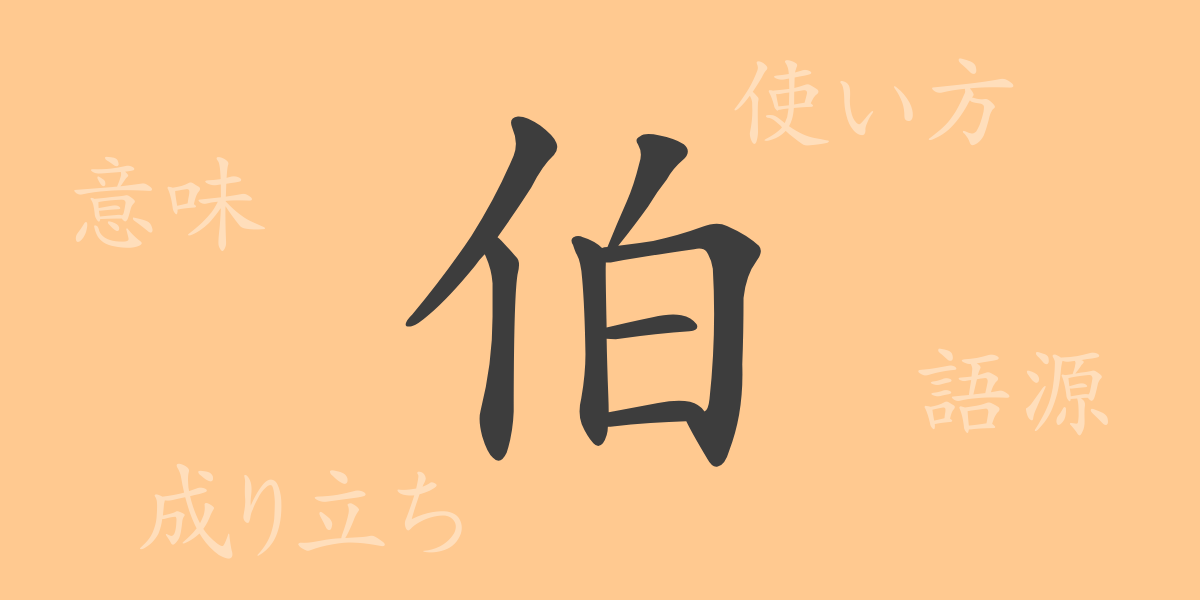The richness of the Japanese language is brought to life through its complex and delicate writing system. At the heart of this system lies kanji, with one of the commonly used characters in daily life being “伯” (haku). This article delves into the origins, meanings, usage, pronunciations, and related idioms of the kanji “伯,” uncovering its unique charm.
Origins of 伯 (Etymology)
The kanji “伯” originated in ancient China. It began as a pictograph, initially combining “白” (white) and “又” (hand), with the upper part symbolizing something large and white, signifying something “long” or “superior.” Over time, it evolved to represent titles within the social hierarchy, with “伯” coming to signify a noble rank.
Meaning and Usage of 伯
“伯” primarily refers to a noble title in ancient China. It is also used to indicate the eldest or senior in a group of siblings. In modern Japanese, it is commonly seen in family terms, place names, and company names. For example, “伯父” (ojisan) refers to one’s uncle (father’s elder brother), and “伯母” (obasan) refers to the wife of that uncle.
Pronunciations, Stroke Count, and Radical of 伯
The kanji “伯” has distinct characteristics in its form and reading.
- Pronunciations: The on’yomi (Chinese reading) is “ハク” (haku), while the kun’yomi (Japanese reading) can be “おおきい” (ookii) among others.
- Stroke Count: It consists of 12 strokes.
- Radical: The radical is 亻 (ninben), representing a person.
Idioms, Sayings, and Proverbs Using 伯
Idioms and expressions containing “伯” reflect its origins and cultural background. For instance, “伯仲” (hakuchuu) indicates nearly equal strength or status, and “伯爵” (hakushaku) is a noble title. Additionally, “伯母” (oba) is paired with “叔母” (oba) to distinguish the paternal uncle’s wife.
Conclusion on 伯
The kanji “伯” has been ingrained in Japanese language and culture through its long history, from representing noble ranks to indicating familial relations. Its usage extends across various contexts, demonstrating the richness of Japanese expression. Understanding the history and cultural significance of “伯” can deepen one’s appreciation of the Japanese language.

























